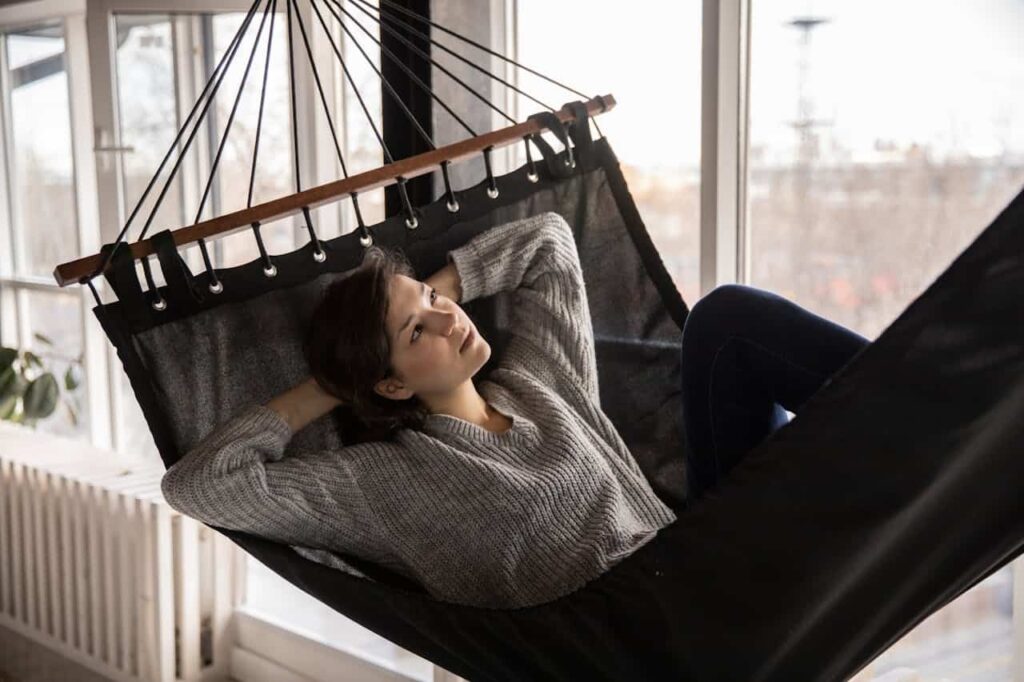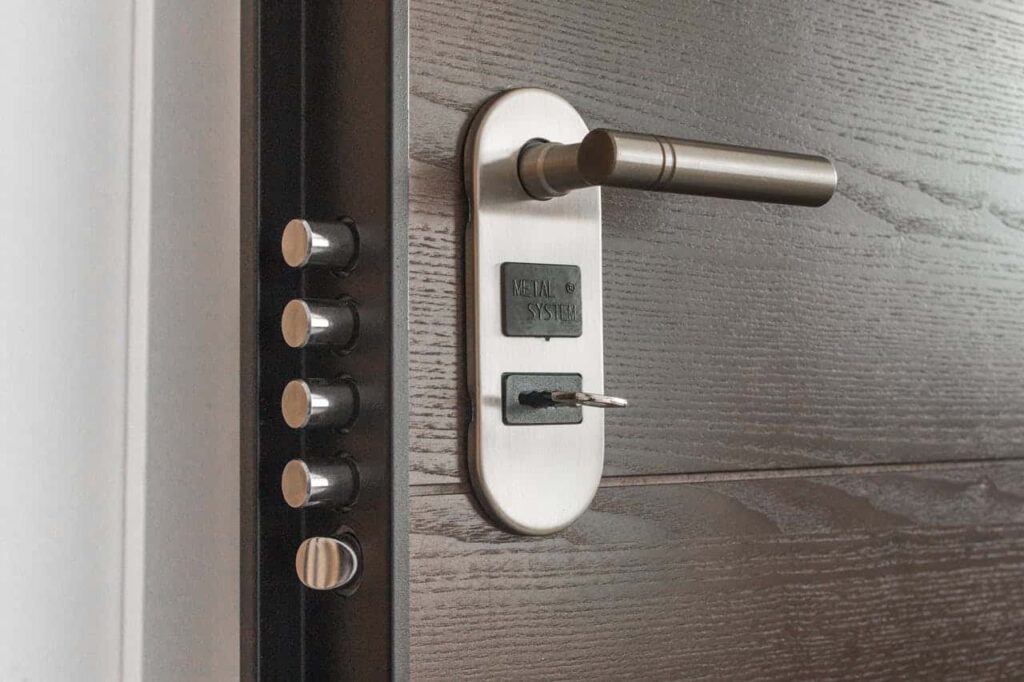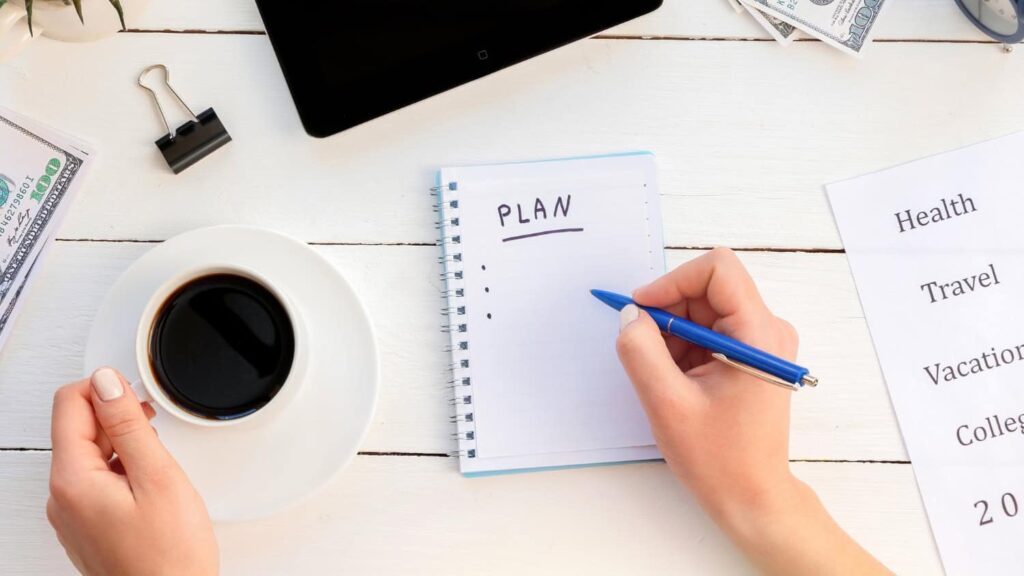
Navigating the transition to living alone for the first time can be both exciting and daunting. Embracing independence, creating a safe and secure living environment, managing finances, and building a support system are all crucial aspects of this new chapter. In this article, we will explore practical tips and strategies to help you thrive in your solo living situation. From self-care practices to developing healthy routines, we will guide you through the process of adjusting to solo living with confidence and ease.
1- Choosing a suitable living space

One of the most important decisions to make when striking out on your own is choosing a suitable living space. The right living space can greatly influence your overall experience of living alone. There are several factors to consider when selecting a place to live, such as budget, location, size, and amenities.
First, it is crucial to establish a budget before beginning your search for a living space. Consider how much you can realistically afford to spend on rent each month, taking into account other expenses such as utilities, groceries, and transportation. It may be tempting to stretch your budget to secure a larger or more luxurious apartment, but it is important to prioritize financial stability when living alone for the first time.
Location is another key factor to consider when choosing a living space. Think about proximity to work or school, as well as access to public transportation, grocery stores, and other essential services. Consider the safety and convenience of the neighborhood, and whether it aligns with your lifestyle and preferences. Keep in mind that a longer commute may come with added stress and expense, so it is worth considering when selecting a location.
The size of your living space is also important to consider. A studio or one-bedroom apartment may be more than enough for a single person, while a larger space may be tempting for those who value extra room and privacy. Think about how much space you truly need, and whether you are willing to sacrifice size for location or amenities. Keep in mind that larger spaces often come with higher rent and utility costs, so weigh the pros and cons before making a decision.
Finally, consider the amenities offered in your potential living space. Do you require a washer and dryer in-unit, or are you comfortable using a communal laundry room? Are you willing to pay extra for a gym, pool, or other amenities, or do you prefer a more basic living arrangement? Think about your lifestyle and preferences, and choose a living space that aligns with your needs and desires. Remember that finding the perfect living space may take time and effort, but the right place can greatly enhance your experience of living alone.
8 Hacks for Maximizing Storage in Tiny Homes
2- Budgeting and financial considerations

Budgeting and financial considerations are crucial when living alone for the first time, as they will determine your ability to sustain your independence and achieve your financial goals. One of the first steps in managing your finances when living alone is creating a budget. A budget is a plan that outlines how much money you have coming in and how much you are spending. This will help you understand where your money is going and where you may need to make adjustments. It is important to factor in all of your expenses, including rent, utilities, groceries, transportation, and any other regular payments you may have.
Once you have established a budget, it is important to stick to it. This means being mindful of your spending habits and making sure that you are not exceeding your budgeted amounts. It may require some discipline and restraint, but staying within your budget will help you avoid financial stress and uncertainty. Additionally, having a budget will allow you to plan for future expenses and emergencies, ensuring that you are prepared for any unexpected costs that may arise.
Another important financial consideration when living alone for the first time is building an emergency fund. An emergency fund is a savings account that is specifically designated for unexpected expenses or emergencies, such as car repairs, medical bills, or job loss. Having an emergency fund will provide you with a financial safety net and peace of mind, knowing that you have a cushion to fall back on in times of need.
In addition to creating a budget and building an emergency fund, it is also important to be mindful of your long-term financial goals. Whether it is saving for a down payment on a house, paying off student loans, or investing for retirement, having clear financial goals will help you stay motivated and focused on your financial future. It is never too early to start planning for the future and living alone for the first time can be a great opportunity to take control of your financial destiny.
3- Safety and Security measures

It is important to invest in quality locks and security systems for your living space. This includes deadbolts on exterior doors, window locks, and security cameras or alarms if possible. These measures not only serve as a deterrent to potential intruders but also provide peace of mind knowing that your home is secure when you are away.
Another important safety measure is getting to know your neighbors and building a strong sense of community within your living environment. Having trustworthy neighbors who can keep an eye out for any suspicious activity or emergencies can be invaluable in times of need. It is also a good idea to exchange contact information with your neighbors so that you can easily reach out to them in case of an emergency.
In addition to physical security measures, it is essential to practice good safety habits and be prepared for emergencies. This includes having a first aid kit readily available, knowing how to use fire extinguishers, and having a plan in place for evacuating your home in case of a fire or other disaster. Taking the time to familiarize yourself with emergency protocols and procedures can make all the difference in ensuring your safety and well-being.
Another important aspect of living alone for the first time is being mindful of personal safety when out and about in the community. This includes being aware of your surroundings, avoiding risky situations, and trusting your instincts if something feels off. It is also a good idea to let someone you trust know your plans and whereabouts when venturing out alone, especially at night.
DHgate has everything you need for your safety
4- Managing Household Chores

It can be overwhelming at first, but with some organization and planning, it is possible to keep a tidy and well-maintained living space. The first step in managing household chores when living alone for the first time is creating a schedule. This schedule should outline what chores need to be done daily, weekly, and monthly. For example, daily tasks may include dishes, sweeping, and making the bed, while weekly tasks may involve vacuuming, laundry, and dusting. By breaking down chores into manageable chunks, it becomes easier to stay on top of them and prevent them from piling up.
Another important aspect of managing household chores is setting aside dedicated time for them. It can be tempting to put off cleaning and other chores until they become overwhelming, but this only creates more stress in the long run. By carving out time each day or week specifically for chores, they become a regular part of your routine and are less likely to be neglected.
When living alone, it is also important to prioritize tasks based on their importance and urgency. For example, dishes and laundry should be done regularly to prevent odors and bacteria from building up, while organizing cabinets and closets can be done on a less frequent basis. By focusing on what needs to be done first, you can efficiently manage your time and keep your living space clean and organized.
In addition to creating a schedule and setting aside time for chores, it is also helpful to invest in cleaning supplies and tools that make the job easier. High-quality vacuum cleaners, mops, and dusters can make cleaning more efficient and effective, while eco-friendly and natural cleaning products can ensure a safe and healthy living environment. By having the right tools at your disposal, you can tackle household chores with confidence and ease.
Effortless Home Cleaning: Top 8 Time-Saving Strategies
5- Building a Support Network

Building a support network is essential for those venturing into this new phase of life. A support network provides not only emotional support but also practical help and guidance in navigating the challenges of living alone. One of the first steps in building a support network when living alone for the first time is reaching out to friends and family. These are the people who know you best and care about your well-being. They can provide a listening ear, offer advice, and help out in times of need. Whether it’s helping you move into your new place, or just checking in on you regularly, friends and family can be a source of comfort and stability during this transition period.
In addition to friends and family, it’s important to also cultivate relationships with neighbors and colleagues. These are the people you will interact with daily, and having a good rapport with them can make living alone feel less lonely. Neighbors can provide a sense of community and security, while colleagues can offer a different perspective on work-life balance and self-care. Getting to know the people in your immediate surroundings can create a sense of belonging and connectedness that is crucial when living alone.
Joining clubs, groups, or organizations in your community is another way to build a support network when living alone for the first time. Whether it’s a book club, a sports team, or a volunteer organization, these groups can provide opportunities to meet new people, make friends, and engage in activities that interest you. Being part of a community can help alleviate feelings of isolation and provide a sense of belonging that is essential for mental and emotional well-being.
Seeking out professional support is also important when living alone for the first time. This may include a therapist, counselor, or support group for individuals living alone. These professionals can provide guidance, advice, and emotional support as you navigate the challenges of living independently. They can help you develop coping strategies, manage stress, and build resilience in the face of adversity.
6- Prioritizing Self-Care and Well-Being

One of the first things to consider when living alone is creating a routine that includes self-care activities. This can include making time for exercise, meditation, healthy eating, and proper sleep. Taking care of your physical health can have a significant impact on your overall well-being, as it can improve your mood, energy levels, and immune system. Setting aside time each day for self-care activities can help you establish a sense of balance and consistency in your life. In addition to physical self-care, it is also important to prioritize mental and emotional well-being when living alone. This can involve practicing mindfulness, seeking therapy or counseling if needed, and engaging in activities that bring you joy and relaxation. Living alone can sometimes lead to feelings of loneliness or isolation, so it is important to stay connected with friends and family members and to seek out support when needed.
Another aspect of self-care when living alone is creating a safe and comfortable living environment. This can involve keeping your space clean and organized, decorating in a way that brings you joy, and making your home a place where you feel relaxed and at ease. Taking care of your living space can have a positive impact on your mental well-being, as clutter and disorganization can contribute to feelings of stress and overwhelm.
Finally, it is important to remember that self-care is not selfish, but necessary for your overall well-being. Taking care of yourself allows you to show up as your best self in all areas of your life, whether it be at work, in relationships, or in your pursuits. Living alone for the first time can be a challenging transition, but with a focus on self-care and well-being, it can also be a time for growth, independence, and self-discovery.
7- Emergency Preparedness

In the event of a natural disaster, medical emergency, or other crisis, it is important to be prepared to effectively handle the situation. One of the first steps in emergency preparedness when living alone is to create an emergency plan. This includes mapping out escape routes in case of a fire, identifying safe spaces in the home during severe weather, and having a designated meeting place for family or friends in case of evacuation. It is also important to communicate this plan with loved ones so they are aware of what to do in case of an emergency.
Another essential aspect of emergency preparedness is having an emergency kit on hand. This kit should include items such as non-perishable food, water, a flashlight, batteries, a first aid kit, and any necessary medications. It is important to periodically check and update the contents of the kit to ensure that everything is in good working order and not expired.
In addition to having a plan and emergency kit, it is also important to stay informed about potential threats and how to respond to them. This includes signing up for emergency alerts from local authorities, such as weather warnings or evacuation notices. Keeping abreast of news and updates during a crisis can help you make more informed decisions and potentially save your life. Lastly, it is important to practice emergency drills regularly to ensure that you are prepared and know how to react in a crisis. This could include fire drills, practicing first aid techniques, or reviewing your emergency plan with a friend or family member. By staying proactive and prepared, you can feel more confident and secure living alone for the first time.
8- Embracing Independence

Being solely responsible for your living space, finances, and daily routines can feel empowering. It allows you to make decisions for themselves without having to compromise with others. This independence fosters self-reliance and builds confidence learn to rely on your abilities to navigate through the challenges of adulthood.
Living alone also provides the opportunity to create your sanctuary and personalize your living space to reflect your unique personality and interests. From choosing furniture and decorations to setting up a daily routine, you have the freedom to create a space that feels like home. This sense of ownership over your living environment can be incredibly rewarding and satisfying, as it allows you to express yourself and create a space that feels comfortable and welcoming.
However, living alone for the first time also comes with its own set of challenges. From managing finances and household chores to dealing with loneliness and homesickness, you may face obstacles that test your ability to adapt and thrive in your newfound independence. These challenges can be daunting at first, but they also provide valuable opportunities for personal growth and development. Overcoming these obstacles teaches you important life skills such as budgeting, time management, and problem-solving, which will serve you well in the future.
By implementing the tips and insights shared in this article, you are well-equipped to navigate the challenges and embrace the joys of solo living. Remember to be patient with yourself, seek support when needed, and cherish the moments of independence and self-sufficiency. Here’s to a fulfilling and rewarding experience as you thrive in your newfound solo living space.